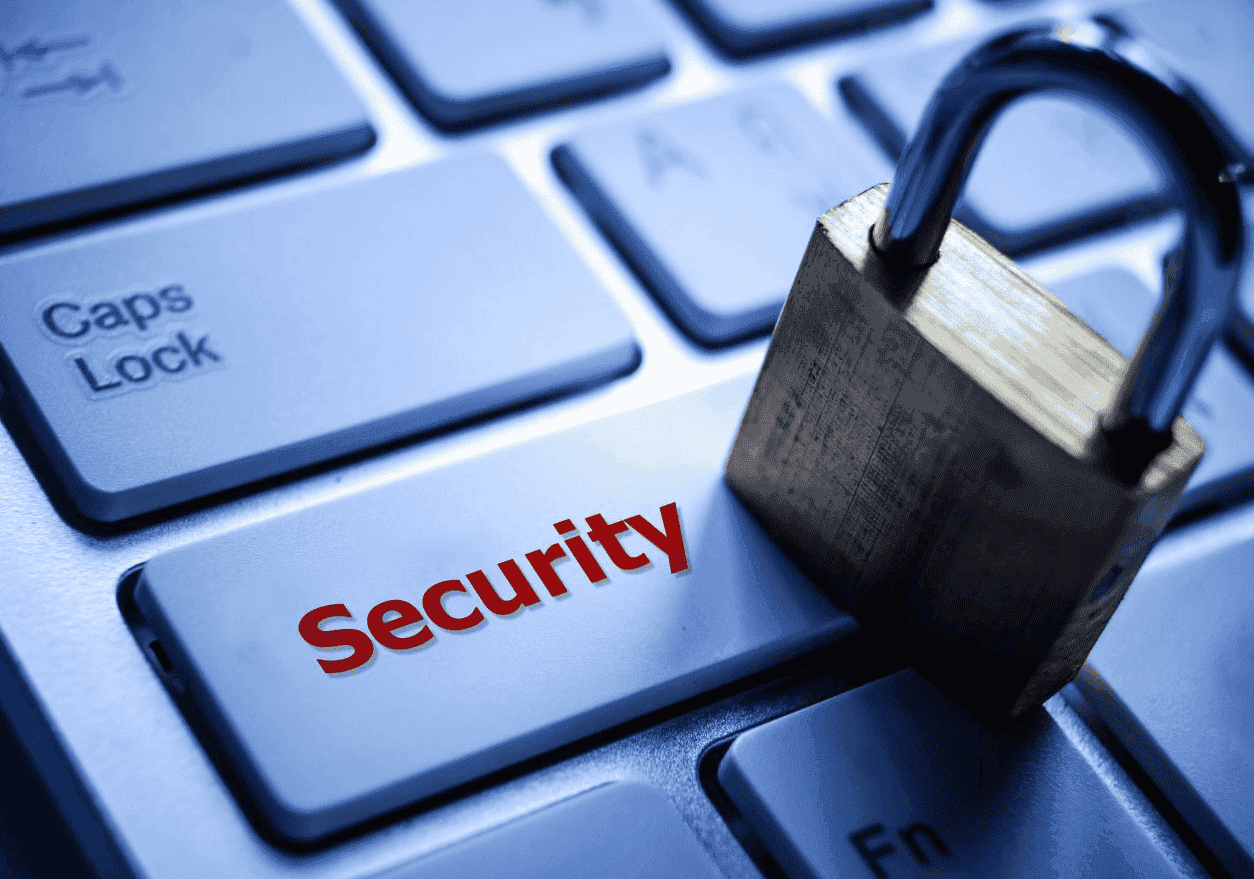Table of Contents
Prioritizing cybersecurity is more important than ever. With the increasing number of online threats and data breaches, understanding the risks and taking proactive measures to protect yourself and your information is essential. In this blog post, we’ll explore the critical components of a robust cybersecurity strategy, from implementing solid passwords and installing reliable antivirus software to regular system updates, utilizing firewall protection, and backing up essential data. By the end of this post, you’ll have the knowledge and tools needed to safeguard your online presence and minimize the risk of falling victim to cyber-attacks.
Understanding The Risks – Computer Security
Understanding the risks computer security is of utmost importance in today’s digital age. With the increase in cyber threats and hacking attempts, individuals and organizations must be aware of the potential dangers in the online world. By understanding the risks, you can take appropriate measures to protect yourself and your sensitive information from falling into the wrong hands.
One of the most significant risks in computer security is malware. Malicious or malware software is designed to harm or exploit computers, networks, and users. It can come in various forms, such as viruses, worms, Trojans, ransomware, and spyware. These programs can be downloaded unknowingly from untrusted websites or through email attachments. Once installed, malware can steal your personal information, hijack your computer, or even encrypt your files and demand a ransom for their release.
Another risk to consider is phishing attacks. Phishing is a method hackers use to trick individuals into revealing sensitive information, such as usernames, passwords, and credit card details. This is typically done through fraudulent emails or websites that mimic legitimate ones. Unsuspecting victims are often lured into providing their information, thinking they are dealing with a trustworthy entity. By being aware of the signs of a phishing attack and practicing caution when disclosing personal information, you can significantly reduce the risk of falling victim to such scams.
- The use of weak or easily guessable passwords is another significant risk in computer security. Many people still use passwords that are too simple or common, making it easier for hackers to gain unauthorized access to their accounts. It is essential to implement strong passwords that include a combination of uppercase and lowercase letters, numbers, and special characters. Additionally, it is recommended to use a different password for each online account to minimize the impact in case one account is compromised.
- Regular system updates are crucial for maintaining computer security. Software developers frequently release updates to fix vulnerabilities and address security issues. By keeping your operating system and applications up to date, you ensure that you have the latest patches and security enhancements. Neglecting to update your software can leave your computer vulnerable to attacks as hackers often exploit known vulnerabilities to gain unauthorized access.
- Utilizing firewall protection is essential in safeguarding your computer from external threats. A firewall acts as a barrier between your computer and the internet, monitoring and controlling incoming and outgoing network traffic. It effectively filters out potentially malicious data and prevents unauthorized access to your network. Enabling a firewall on your computer or using a hardware firewall can provide an additional layer of security to mitigate the risks posed by hackers and malware.
- Backing up important data is a crucial aspect of computer security. Accidental data loss, hardware failures, or malware attacks can result in the loss of valuable information. By regularly backing up your data, you can ensure that even if something goes wrong, you have a copy of your important files stored safely. This can be done through external hard drives, cloud storage services, or network-attached storage (NAS) devices. It is recommended to have multiple backups and to test the restoration process periodically to ensure the integrity of your backed-up data.
| Implementing Strong Passwords | Installing Reliable Antivirus Software | Regular System Updates | Utilizing Firewall Protection | Backing Up Important Data | |
|---|---|---|---|---|---|
| Malware | Weak or easily guessable passwords | Antivirus software vulnerabilities | Importance of software updates | Firewall protection against hackers | Preventing data loss and valuable information |
| Phishing attacks | Different passwords for each account | Real-time scanning and threat detection | Monitoring network traffic | Enabling firewall on computer or hardware | Multiple backup options |
Implementing Strong Passwords

One of the most crucial aspects of computer security is using strong passwords. Passwords are the first defense against unauthorized access to our online accounts and personal information. In today’s digital age, where cyber threats are rampant, it is essential to create passwords that are not easily guessable. Unfortunately, many individuals still use weak and predictable passwords, putting their sensitive data at risk. Therefore, understanding the importance of strong passwords and following best practices is paramount.
First and foremost, a strong password should be complex and unique. It should contain uppercase and lowercase letters, numbers, and special characters. Avoid using common words, personal information, or sequential patterns that can be easily guessed. Instead, opt for a mix of random characters unrelated to your life. Creating a long password with at least 12 characters is highly recommended, as it significantly increases the complexity and makes it harder for hackers to crack.
Furthermore, it is crucial to use different passwords for different accounts. Reusing passwords across multiple platforms is a common mistake that exposes you to more significant risks. If one account gets compromised, all your other accounts also become vulnerable. Consider using a password manager to ensure each account has a unique password. These handy tools securely store your passwords and generate strong, randomized ones for your accounts. Using a password manager, you only need to remember one master password, making it easier to maintain online security.
- Use strong, complex passwords
- Create a unique password for each account
- Consider using a password manager for convenience and security
| Password Strength | Examples |
|---|---|
| Weak | password123, 123456789 |
| Strong | e#WU492ksml!h |
| Weak | abcd1234, iloveyou |
| Strong | 7Z*39p0x&@hP |
Installing Reliable Antivirus Software
Computer security is of utmost importance in today’s digital age. With the increasing reliance on technology, protecting your devices and data from potential threats is crucial. One way to ensure the safety of your computer is by installing reliable antivirus software. This software is designed to detect, prevent, and remove malicious software, also known as malware, from your system.
By installing antivirus software, you are taking a proactive approach to protecting your computer. These programs constantly scan your files and system for any suspicious activities. They can detect a wide range of malware, including viruses, worms, trojans, and spyware. Moreover, reliable antivirus software offers real-time protection, meaning it can intercept and block potential threats before they can cause harm.
Antivirus software often has additional features like web protection and email scanning. Web protection helps safeguard your online activities by preventing you from visiting malicious websites that may contain harmful content. On the other hand, email scanning scans incoming emails and attachments for any potential threats, ensuring that you don’t accidentally download malware.
- Installing reliable antivirus software is a critical step in safeguarding your computer from potential threats.
- Antivirus programs can detect and remove a wide range of malware, including viruses, worms, trojans, and spyware.
- These programs offer real-time protection, intercepting and blocking potential threats before they can cause harm.
- Additional features such as web protection and email scanning further enhance your computer’s security.
- Regularly updating your antivirus software ensures that it stays effective against the latest threats.
| Benefits of Installing Reliable Antivirus Software |
|---|
| 1. Real-time protection against malware |
| 2. Web protection to prevent visiting malicious websites |
| 3. Email scanning to detect potential threats in attachments |
| 4. Detection and removal of viruses, worms, trojans, and spyware |
| 5. Regular updates to keep up with evolving security threats |
Regular System Updates
Where technology plays a crucial role in our lives, ensuring the security of our computer systems is more critical than ever. One effective way to enhance computer security is by regularly updating our systems. System updates are not just about getting the latest features or improvements; they are also essential for safeguarding our computers against potential vulnerabilities.
Firstly, let’s understand what system updates actually entail. These updates are released by software developers to address any identified security weaknesses, improve stability, and fix bugs or glitches in the operating system. By applying these updates, we can enhance the overall performance of our computers. Neglecting system updates can leave our devices more vulnerable to cyber threats.
Why regular system updates matter for computer security?
- Software vulnerabilities: Hackers continually evolve their techniques to exploit software vulnerabilities. Regular system updates ensure that any identified vulnerabilities are promptly addressed, reducing the risk of unauthorized access to our systems.
- Security patches: System updates often include important security patches that protect against newly discovered threats. These patches patch up any weak points, keeping our systems safe from potential attacks.
- Improved privacy: Regular updates can also enhance our privacy settings. Developers often introduce new privacy features and settings that allow us to have better control over our personal information.
How to ensure regular system updates?
Most operating systems have automatic update settings, ensuring the latest updates are installed without requiring manual intervention. It is highly recommended to enable these automatic updates to stay up-to-date with the latest security measures.
Additionally, some individuals may prefer manual updates to have more control over the process. In this case, regularly checking for updates from the software provider’s official website or using built-in update tools is necessary. Software developers often provide detailed instructions on how to obtain and install updates.
Finale
Regular system updates are an essential aspect of computer security. By keeping our operating systems up to date, we can protect ourselves from potential cyber threats, address software vulnerabilities, and ensure the best performance from our computers. Whether automatic or manual, regularly checking for and applying system updates should be a priority for every computer user.
Utilizing Firewall Protection
A firewall is crucial to computer security, serving as a barrier between your computer network and the outside world. Its purpose is to monitor and control incoming and outgoing network traffic based on predetermined security rules. By utilizing firewall protection, you can significantly enhance the security of your system and safeguard it against various cyber threats, such as unauthorized access, malware, and hacker attacks.
A firewall can help prevent malicious traffic from entering your network and protect sensitive data. It acts as a filter, analyzing incoming packets and determining whether they should be allowed or blocked based on specific criteria. This criterion can include IP addresses, protocols, ports, or even patterns within the data.
There are two main types of firewalls: hardware firewalls and software firewalls. Hardware firewalls are typically implemented at the network level, often found in routers or network security appliances. On the other hand, software firewalls are installed directly on individual computers and provide protection at the operating system level.
- Benefits of Utilizing Firewall Protection:
| Enhanced Network Security: | A firewall acts as a first line of defense, monitoring and controlling incoming and outgoing traffic to prevent unauthorized access to your network. It helps protect against various cyber threats, such as malware, viruses, and hacker attacks. |
| Improved Privacy: | A firewall can help maintain your privacy by blocking unauthorized access to your system. It acts as a shield against hackers or malicious software that might attempt to gain access to your personal information or sensitive data. |
| Prevention of Data Breaches: | By monitoring network traffic, a firewall can identify and block any unauthorized attempts to access your system or steal sensitive information. This helps prevent data breaches and safeguards your important data from being compromised. |
| Control over Network Traffic: | A firewall allows you to define and enforce security policies, giving you control over what types of network traffic are allowed or blocked. This helps prevent unauthorized access to your network and ensures that only legitimate traffic is permitted. |
It is important to note that while firewalls provide an additional layer of security, they should not be solely relied upon. It is recommended to have multiple security measures in place, such as strong passwords, reliable antivirus software, and regular system updates, to ensure comprehensive protection against threats.
Backing Up Important Data
In today’s digital age, where we heavily rely on computers and other electronic devices to store and manage important information, backing up data has become critical to computer security. Imagine losing all your precious photos, documents, and files due to a hardware failure or a malicious attack. It can be a devastating experience. However, by implementing a proper data backup strategy, you can protect yourself from such unfortunate events and ensure the safety and availability of your valuable data.
One of the most common and recommended methods of backing up data is using external storage devices such as hard drives or USB flash drives. These devices provide a convenient and portable solution for storing backups. By regularly copying your important files onto these external drives, you can create a duplicate copy of your data that can be quickly restored in case of any data loss.
Another popular approach to data backup is utilizing cloud storage services. These services allow you to store your data on remote servers over the internet. Cloud backups offer the advantage of accessibility from anywhere with an internet connection and provide an additional layer of protection against physical damage or theft. Companies like Google Drive, Dropbox, and Microsoft OneDrive offer reliable, secure cloud storage options.
- It’s important to note that a single backup alone is not sufficient to ensure the complete protection of your important data. As hardware can fail or get damaged, it is recommended to create multiple copies of your backups and store them in different locations. This strategy, known as “3-2-1 backup,” involves having three copies of your data, stored on two different media types, with at least one copy stored off-site.
| Media Type | Advantages | Disadvantages |
|---|---|---|
| External Hard Drives | Large storage capacityFast data transfer speedsPortable | Prone to physical damage or theftCan fail over time |
| USB Flash Drives | Small and portableEasy to useAffordable | Limited storage capacityEasily lost or misplacedSlower data transfer speeds |
| Cloud Storage | Accessible from anywhereAutomatic backupsScalable storage options | Requires internet connectionPotential privacy concernsSubscription costs |
No matter which method or combination of methods you choose to back up your important data, it is crucial to regularly check the integrity of your backups and ensure they are up to date. This can be done by periodically verifying the backup files, testing the restoration process, and updating the backups whenever new files or changes are made.
Backing up important data is not a one-time task but an ongoing practice that should be included in your overall computer security strategy. By taking the necessary steps to protect your data through regular backups, you can minimize the risks of losing valuable information and restore it swiftly in case of unforeseen circumstances.



